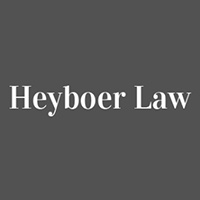Capac Bankruptcy & Debt Lawyer, Michigan
Sponsored Law Firm
-
 x
x

Click For More Info:
-
Marrs & Terry, PLLC
6553 Jackson Road Ann Arbor, MI 48103» view mapBankruptcy & Debt Personalized, Efficient Counsel
Marrs & Terry, PLLC have been helping individuals face a variety of legal challenges, including bankruptcy, estate planning and administration, and family law.
800-862-7221
Anissa Cherri Hudy
✓ VERIFIEDAnissa Hudy is a practicing lawyer in the state of Michigan.
David R. Heyboer
✓ VERIFIEDWhen you've been arrested and facing criminal charges, there can be serious consequences for you and your family. Don't face your criminal charges alo... (more)
Shawn J. Coppins
✓ VERIFIEDShawn Coppins is an aggressive plaintiff's attorney and is one of the firm's founding partners.Mr. Coppins was born and raised in the Metro-Detroit ar... (more)
Justin G. Grove
✓ VERIFIEDI have spent my legal career defending the little guy against big corporations. Everyday we help regular people fight the mortgage companies, insuranc... (more)
Jeffery D Maynard
The attorneys of Maynard Law Associates, PLLC are skilled at walking our clients through each step of the complicated legal process. If you are co... (more)
Phillip A. Greenblatt
✓ VERIFIEDI can resolve your debt collection problems. I stop or minimize the prospect of garnishment of your wages and assets. I aggressively defend client'... (more)
Aaron J. Scheinfield
✓ VERIFIEDAaron J. Scheinfield, born Farmington Hills, Michigan, December 1977, was admitted to the Bar in 2004. Education: University of Michigan (B.A. 2000); ... (more)


 Tricia Terry Ann Arbor, MI
Tricia Terry Ann Arbor, MI AboutExperienced Michigan Lawyer
AboutExperienced Michigan Lawyer Articles
Articles







